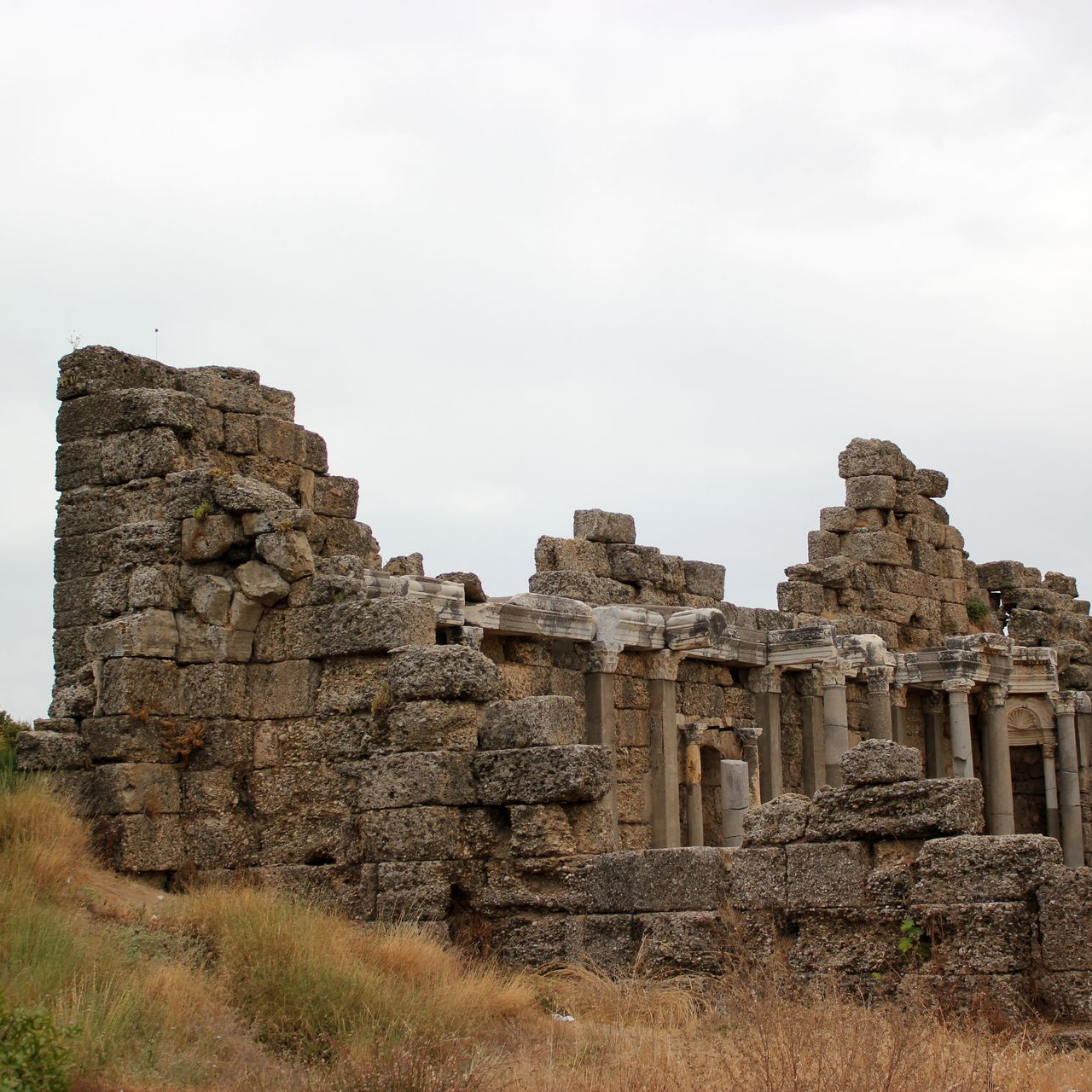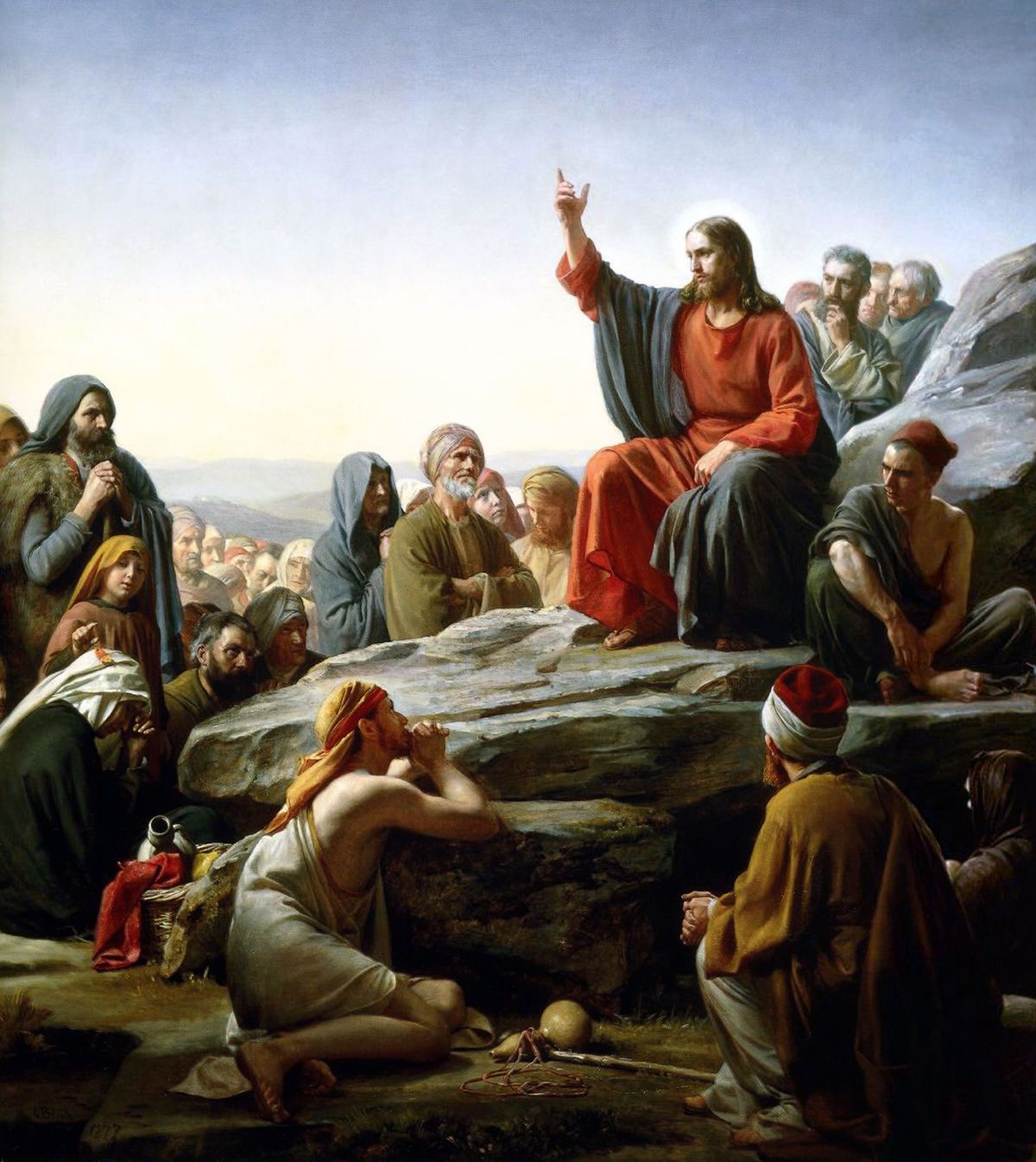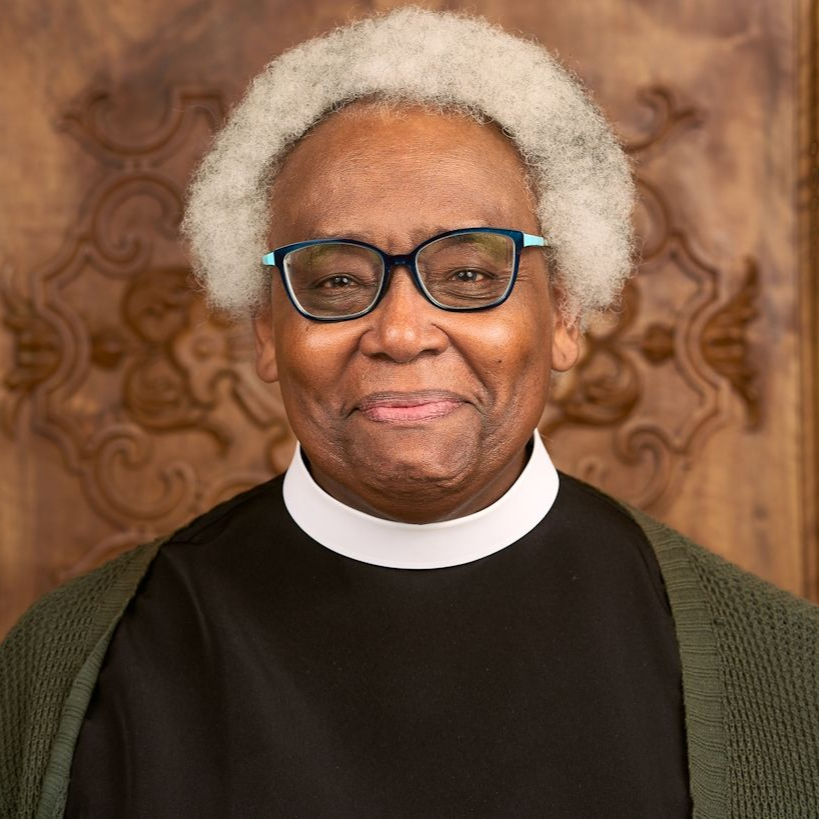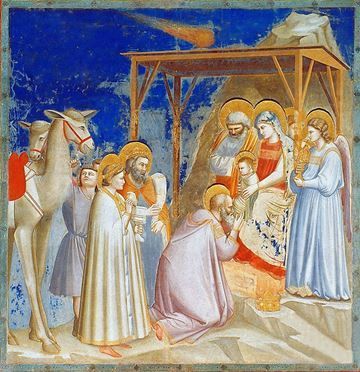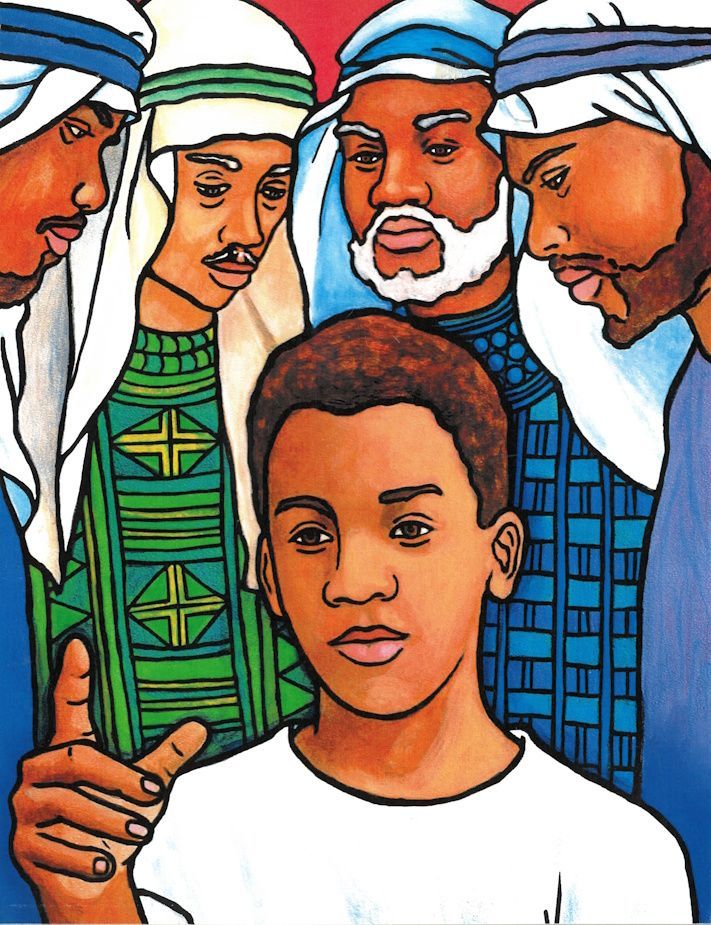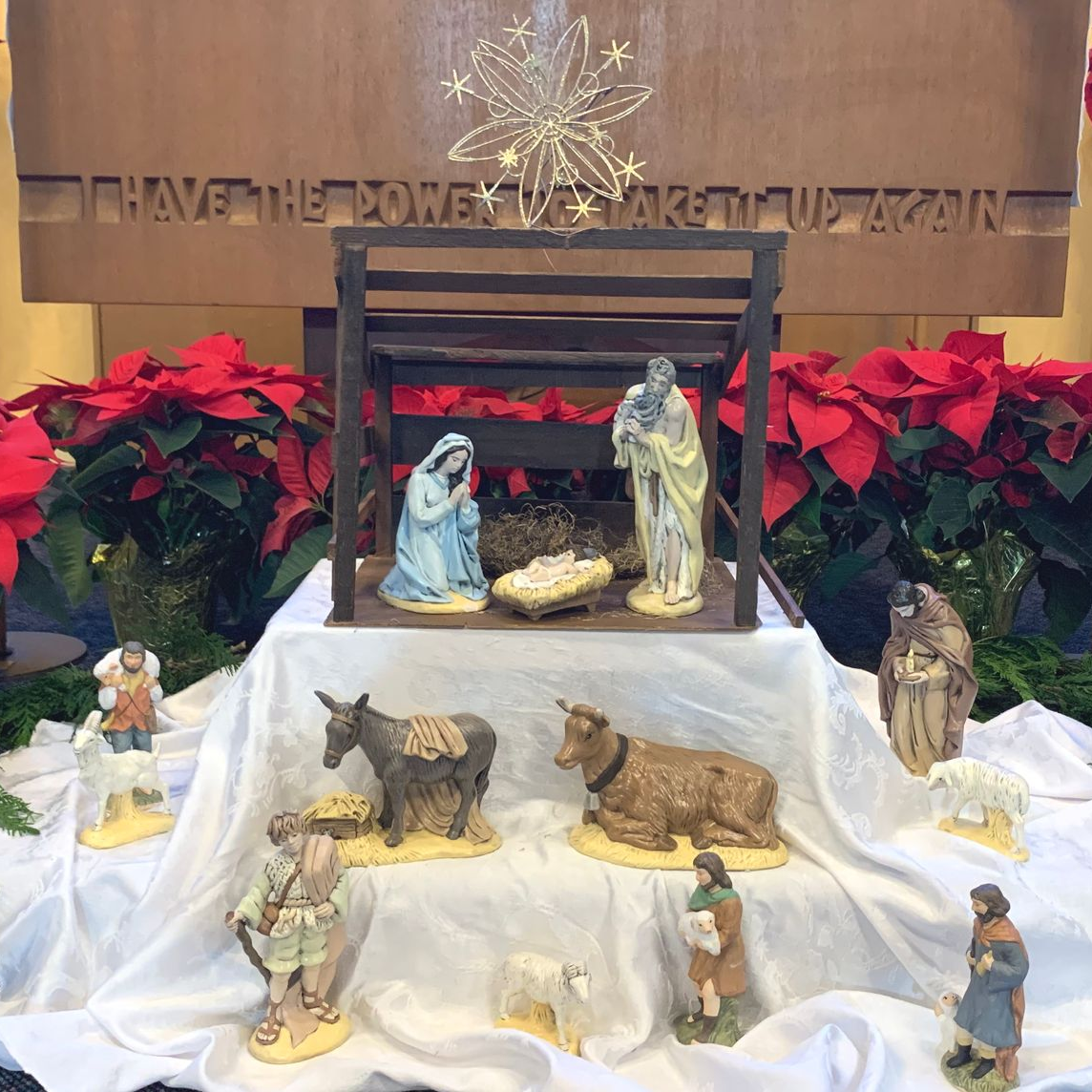Is It Too Late?
At what point will change just become too difficult for our souls to bear?
2025-49
sermon preached at Church of the Good Shepherd, Federal Way, WA
www.goodshepherdfw.org
by the Rev. Josh Hosler, Rector
The Sixteenth Sunday after Pentecost (Proper 21C-Tr1), September 28, 2025
Jeremiah 32:1-3a, 6-15 ; Psalm 91:1-6, 14-16 ; 1 Timothy 6:6-19 ; Luke 16:19-31
Have you heard the one about the Episcopal priest who dies and finds himself waiting in line at the Pearly Gates? Well, ahead of him is a guy who’s dressed in sunglasses, a loud shirt, a leather jacket, and jeans.
St. Peter asks, “Who are you, so that I may know whether or not to admit you into heaven?” The guy replies, “I’m Joe Mangione, taxi driver, of Noo Yawk City.” St. Peter consults his list. He smiles and says, “Take this silken robe and golden staff and enter into eternal joy.” The cabbie goes through the gates with his robe and staff, and it’s the priest’s turn.
The priest pulls himself up straight and announces with confidence, “I am Joseph Snow, rector of St. James for the last forty-three years.” St. Peter consults his list, his brow furrowed. Then he says to the priest, “Yeah, OK, whatever—take this cotton robe and wooden staff and go on in.”
“Just a minute,” says the priest. “That man was a taxi driver, and he gets a silken robe and golden staff. But you’ve given me a cotton robe and wooden staff. How can this be?!”
“Up here, we work by results,” says St. Peter. “While you preached, people slept; but while he drove, people prayed!”
I open with this joke because, first of all, there’s a time-honored tradition of opening a sermon with a joke—note that I didn’t say a good joke. But I told this joke for another reason—because I think Jesus is doing something similar in today’s gospel reading. Only in his case, it’s not supposed to be funny, but deadly serious.
In the gripping parable of Lazarus and the Rich Man, Jesus gives us much of the imagery we still attribute to an imagined afterlife: a heaven of joy and comfort above, a burning fire of Hades beneath, and a giant chasm between them. Doubtless Dante drew on these images and expanded on them when he created Inferno and The Divine Comedy.
But we must remember that this is a parable, not a divine description of a metaphysical reality. Jesus is using a stock setting—the ancient equivalent of a “St. Peter at the gate” story. Except, in this case, St. Peter is actually there with Jesus, listening to the story! Whoa—mind blown.
So in this parable, Jesus illustrates a total reversal of fortune for these two men on the other side of death. From the underworld where he is no longer privileged but tormented, the rich man instructs Abraham first to send Lazarus to him with just a drop of water, and barring that possibility, then as a messenger to warn his family of their potential fate … as if Lazarus were still some poor lackey to be ordered around.
It strikes me that maybe the rich man has fixed that giant chasm himself. Now it is too late. He may have mastered the art of the deal, but he has never attempted the art of generosity. What if he had noticed Lazarus at the gate and befriended him? What if he had started giving early on, before he became a self-made man, when he didn’t have two dimes to scrape together, but when he could have given one of his two nickels away? How might things have gone differently? Would he ever have become so rich? And if not, what would have been wrong with that?
The purpose of the parable is not to condemn anyone to everlasting suffering, but to increase our own sense of urgency. Many of Jesus’ later parables, especially, implore us not to wait to change our lives, and they imply a continuity between our lives now and our afterlives then. We can’t assume that death will suddenly make us infinitely wise or abundantly giving enough to enjoy whatever heaven might turn out to mean. At what point will change just become too difficult for our souls to bear? And is this moment, right now, too soon to begin really living?
For we know that even on this side of the grave, there is such a thing as “too late.” We heard from Jeremiah today on this very problem. Despite the dire warnings of all the prophets, who saw it coming for years and years and consistently urged the people to prevent it by treating the poor with decency for a change, the Babylonians have overrun Judah and are carting off the elites into exile. God’s holy temple is profaned and destroyed. It is the end of the world as the people of God know it. And Jeremiah has every right to say, “I told you so.”
But Jeremiah does something different instead. It sounds at first like a boring business deal explained in excruciating detail. You may have been sitting here wondering, “Why on earth is this in the Bible? And why are we reading it today?” But let me explain its significance by telling a modern-day story.
Imagine that it’s the year 2050. The oceans have swallowed up Miami and many other coastal cities. Imagine that people around the world are dying from sunstroke and lack of clean water. The worldwide economy has crashed—oh, and it’s far worse than 1929. Desperate waves of migrants stream across the globe. Most if not all democracies have devolved into dictatorships warring against each other and hoarding resources. All the stable systems we used to take for granted lie in shambles at our feet.
Now imagine that a haggard-looking, half-starved, middle-aged Greta Thunberg goes on international TV and ceremoniously takes out a mortgage on a large mansion on what has suddenly become coastline property. She tells the reporters, “I’m going to hang onto the deed to this land until I can invite my children and grandchildren to live in this mansion with me and hold a celebratory housewarming party.”
This is what is happening in today’s reading from Jeremiah. Jeremiah says, “I’m buying some land, because there will come a time when I’ll be able to sell it again. God will not abandon us.” This is a prophetic demonstration of hope in the midst of despair.
In the meantime, for those of us back in 2025, it’s not too late to change. Not yet. But almost.
I’ve long felt that the biggest challenge in our world today is “enoughness.” The writer to Timothy suggests that if our community has any wealth beyond that which meets our immediate needs for food and shelter, we can choose to be content. And we have the privilege of deciding what to do with what remains. None of our wealth really belongs to us; everything in our lives is a gift from God, and the gift of material resources is particular to our earthly lives. To whatever degree we do not share our resources with those in need, we are implicated in their suffering, because we are not a planet full of isolated individuals. Make no mistake: failure to consider the needs of others is the root cause of our climate crisis and most other world crises besides.
I know, this is a tough pill to swallow. You didn’t come here to be preached at.
But theologian Walter Brueggemann writes that “the prophetic tasks of the church are to tell the truth in a society that lives in illusion, grieve in a society that practices denial, and express hope in a society that lives in despair.” This is right. We were made to love each other. We were made to give each other reason to hope. And the Holy Spirit places the Church at the center of that project. Because of God’s prophets, the Church knows how to puncture illusions of security, illusions of isolationism, illusions that God does not care what we do. And when we do this, people often accuse us of being “too political.”
But because of Jesus Christ, the Church also knows about something others in our society may not: death and resurrection. Christians don’t have the luxury of being cynical. The world is full of people who know that death is real. But have they experienced resurrection? In the Church, we don’t believe in death without resurrection. We know that faith is for things we hope for but cannot yet see. We trust that God is in this with us for the long haul.
And we don’t just hope for pearly gates and Peter welcoming us in—that’s fine, but it’s not our focus. We Christians see death and resurrection all around us even in this life. Shouldn’t Christianity be uniquely qualified to handle times like these?
My job as a priest is not to preach you into slumber, but to invite you to join me and to continue with me in the Church’s work of truth-telling, grief-assisting, and hope-inspiring. No matter how bad things get, God does not abandon us. We are to demonstrate that hope through the living of our lives. And if we are unusually positioned to have lots of cash constantly flowing toward us, then unlike the rich man in today’s parable, we can send it right back out again. So … what are you willing to give up in order to give our great-great-great-grandchildren a life that really is life?
Well, in the interest of the kind of hope the Church holds out for the world, we need a joke right about now. A man dies and goes to heaven. St. Peter meets him at the pearly gates.
Peter says, “Welcome to the Good Place! Here’s how it works. You need 1000 points to make it into heaven. You tell me all the good things you’ve done, and I give you a certain number of points for each good deed. When you reach 1000 points, you get in.”
“Okay,” the man says, “I attended church every Sunday.”
“Great!” says St. Peter. “That’s worth one point.”
“One point?” he says. “Well, I gave 10% of all my earnings to the church.”
“All right,” answers Peter, “that’s worth another point. Did you do anything else?”
“Hmmm. How about this: I served a meal at my church every Saturday and worked in a shelter for homeless veterans.”
“Fantastic! That’s certainly worth a point,” Peter says.
The man starts to sweat. “Well … I called my congresspeople regularly to demand sweeping and immediate action against climate change, and I marched in the streets as well to safeguard democratic systems.”
“That’s wonderful!” says Peter. “That’s worth one point.”
“One point?!” the man cries. “But it’s only by the grace of God that I’m standing here at all!”
“Exactly,” says St. Peter, and the gate swings open. “Come on in.” Amen.


